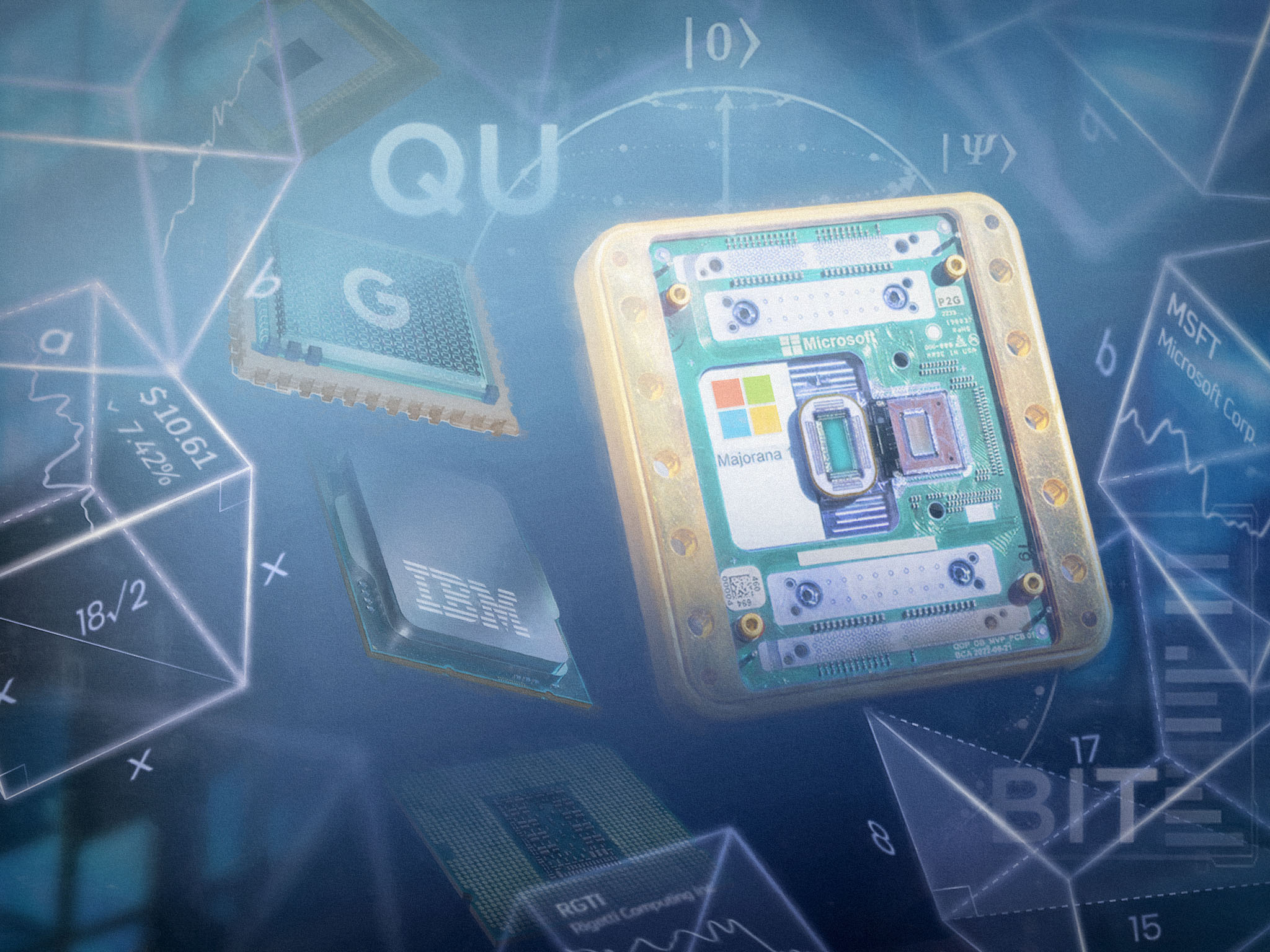Microsoft (NASDAQ: MSFT) redefines ‘quantum leap’ with a whole new state of being

Microsoft (NASDAQ: MSFT) may have a hard time making software that people actually like to use (think Teams), but the technology giant is showing that it can still be on the cutting edge and announced on Wednesday that it had jettisoned to the forefront of the quantum computing race with an entirely new state of being.
“Most of us grew up learning there are three main types of matter that matter: solid, liquid, and gas. Today, that changed,” CEO Satya Nadella wrote in a post on X. “After a nearly 20 year pursuit, we’ve created an entirely new state of matter, unlocked by a new class of materials, topoconductors, that enable a fundamental leap in computing.”
He was referring to the so-called Majorana 1 chip, which Microsoft says leverages “the world’s first topoconductor” that will eventually clear the path to fit a million qubits—the basic unit of quantum computing—in the palm of one hand. The breakthrough was designed and built atom by atom using materials like indium arsenide and aluminum. Nadella said it all means that “truly meaningful” quantum computing will now be possible in mere years instead of decades, with a single processor able to solve problems that all the combined computers on Earth today could not.
It’s a lot for any non-physicist to digest, but to put that into perspective, a widely heralded quantum chip introduced by Google (NASDAQ: GOOGL) in December called Willow boasted just 105 qubits. IBM’s (NYSE: IBM) latest quantum roadmap outlines a goal to achieve a 2,000-qubit chip by 2033, at the earliest. Microsoft appears to be charting a leap that would put it orders of magnitude ahead of the current competition, although it’s not clear how close the chip is to actual commercial production. Million-qubit machines will be especially suited for certain types of problems in chemistry and materials science, the company said.
“Any company that makes anything could just design it perfectly the first time out. It would just give you the answer,” Microsoft technical fellow Matthias Troyer said in a blog post. “The quantum computer teaches the AI the language of nature so the AI can just tell you the recipe for what you want to make.”
Many quantum stocks have given back some of the gains spurred by excitement surrounding Google’s announcement late last year, but they’ve still been quite hot. IonQ (NYSE: IONQ) is up 368% over the past six months, while D-Wave Quantum Systems (NYSE: QBTS) gained 603%. Over the same period, Rigetti Computing (NASDAQ: RGTI) has increased 1,167%, and Quantum Computing Inc. (NASDAQ: QUBT) is up 1,183%. Microsoft shares rose 1.3% on Wednesday, although they’re still down 1.6% over the past half-year.
There’s ample debate as to just how much AI may revolutionize the economy in years to come, but quantum computing is already starting to loom on the horizon just beyond. And while startups in both spheres abound, it’s the old dogs like IBM, Microsoft and Google that seem to be driving innovation at scale in both pursuits. It takes serious cash to invest in the hardware and physical infrastructure that will power the future, and the biggest players may hold an edge that will only compound over time.
